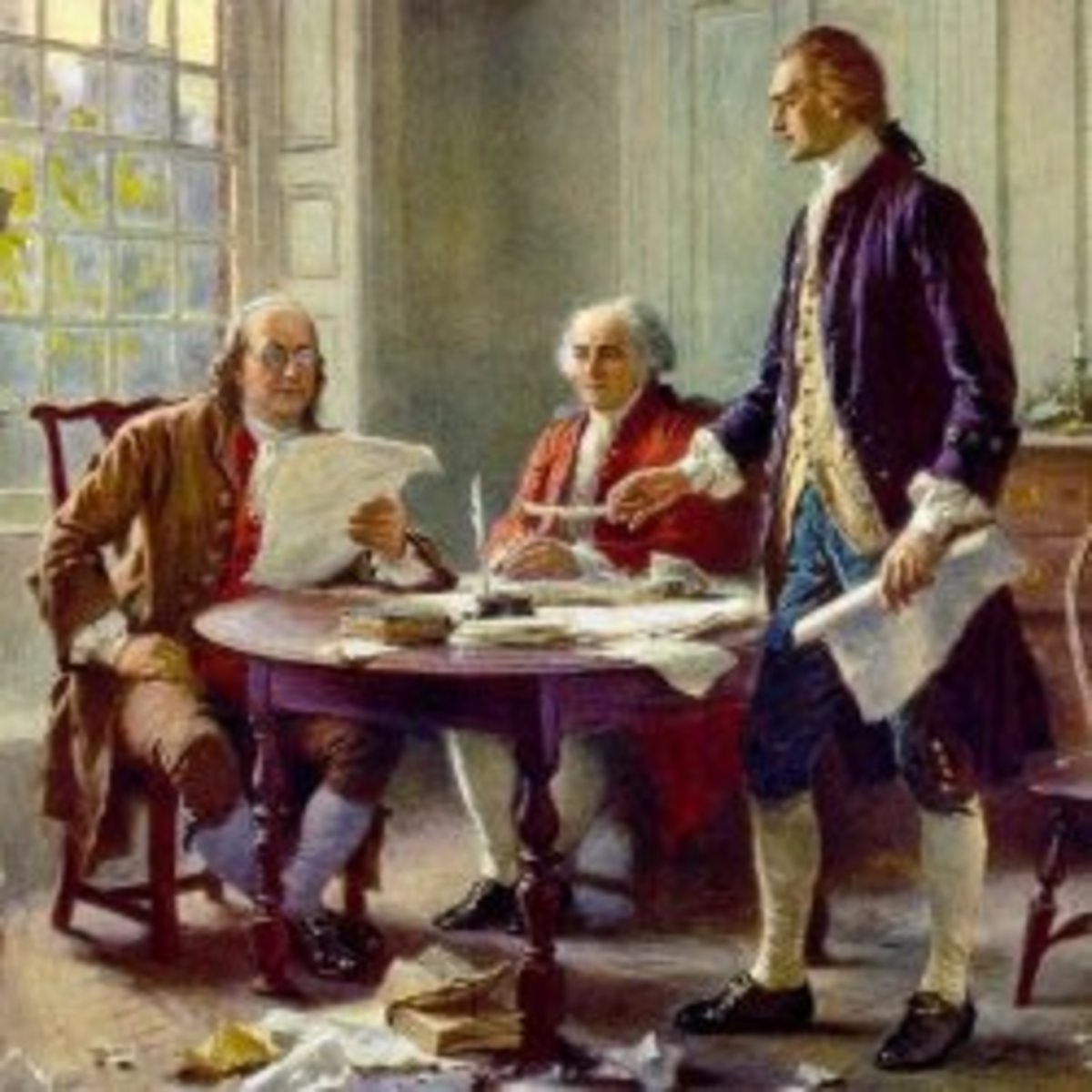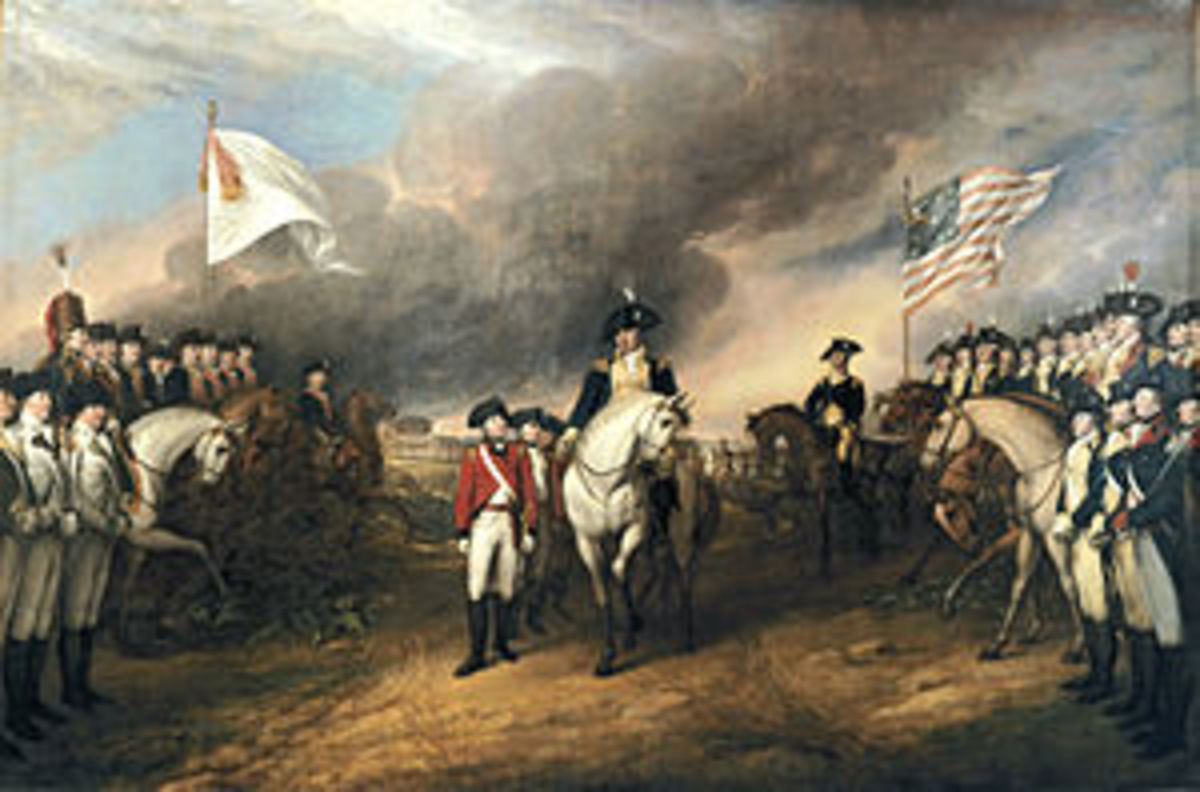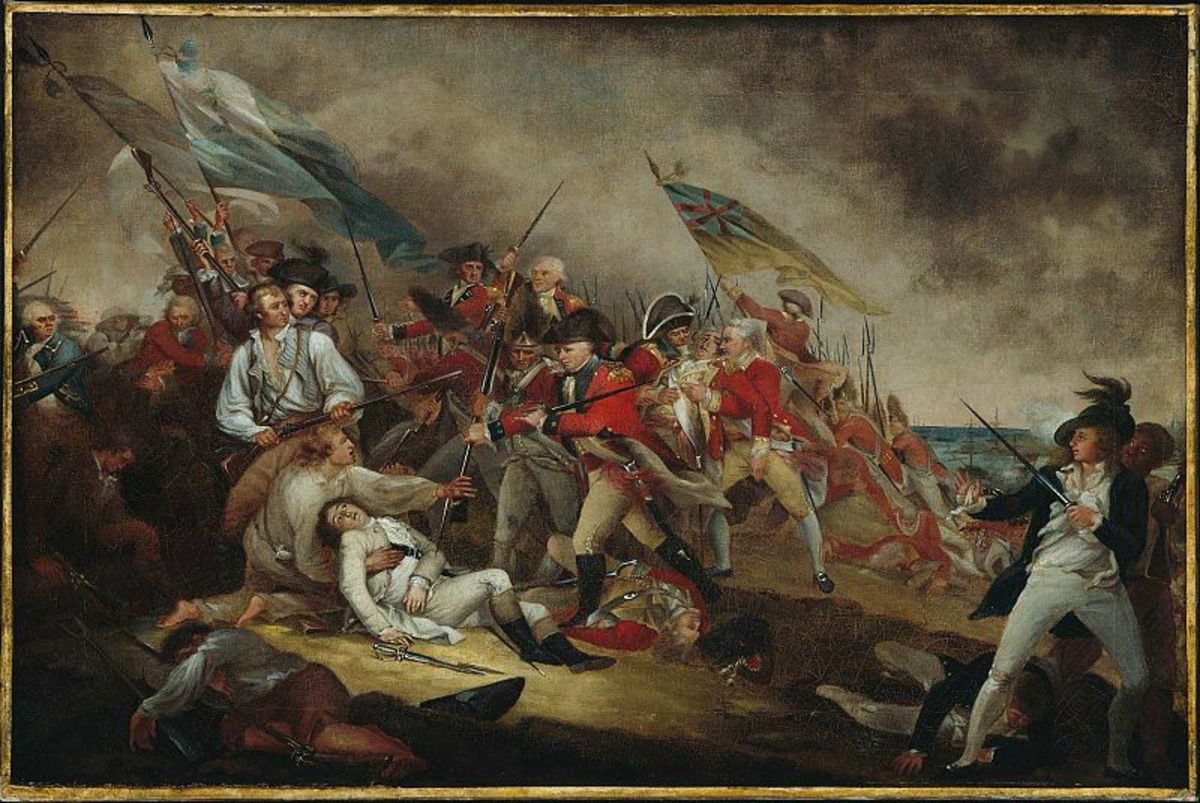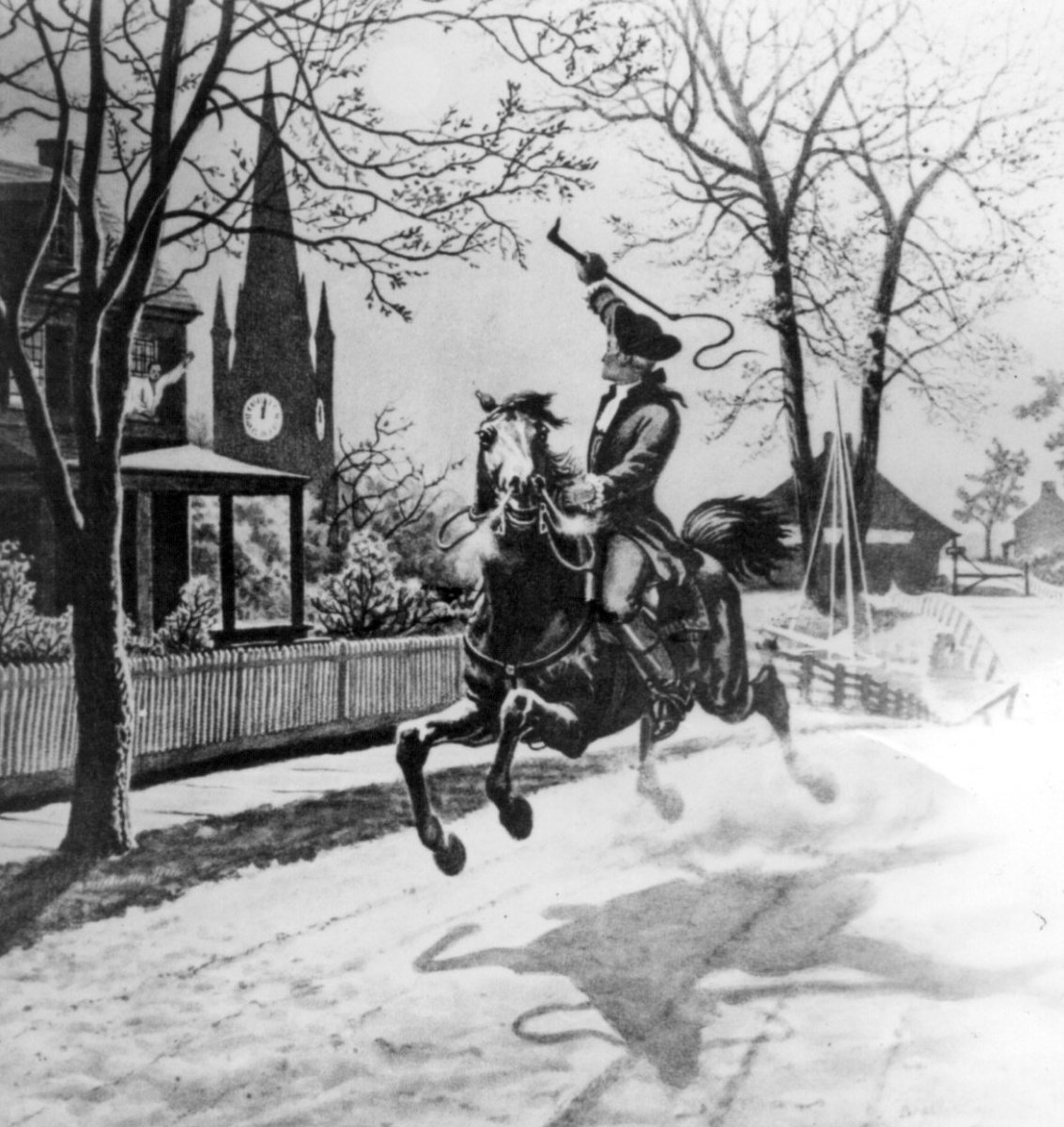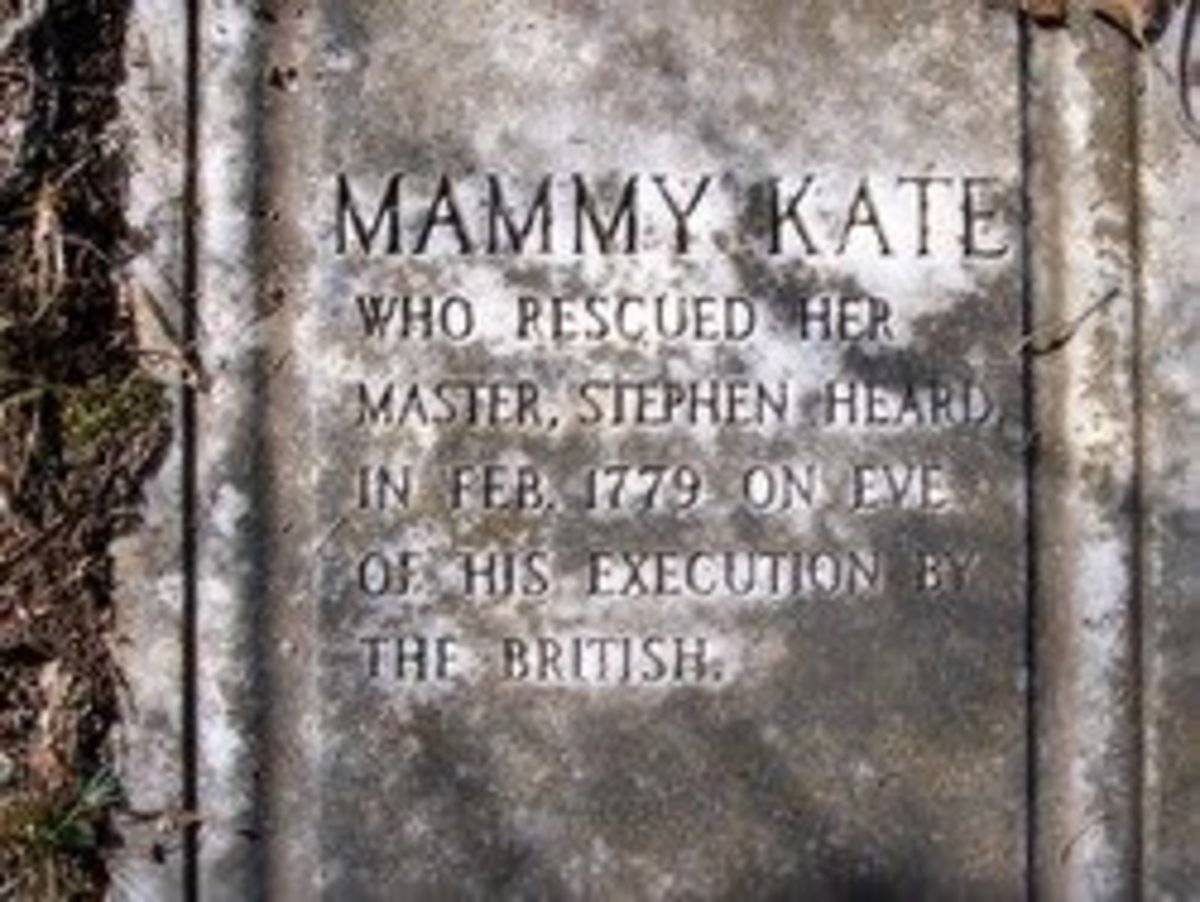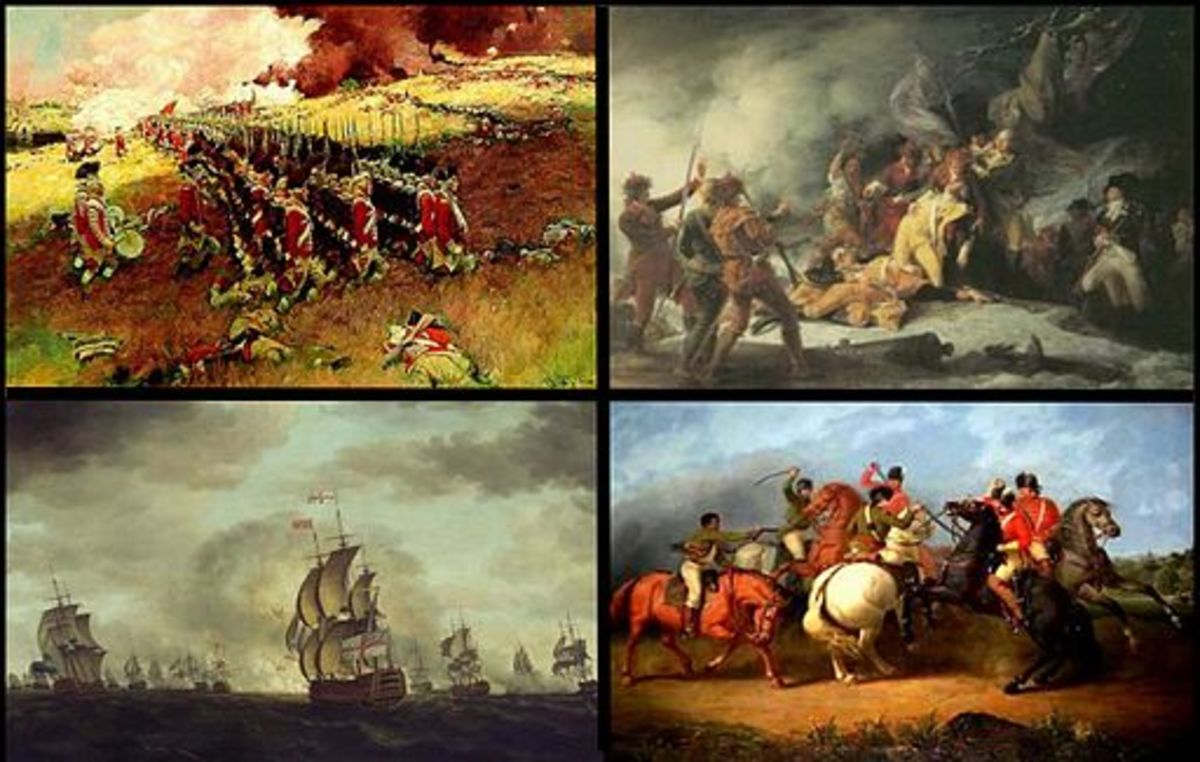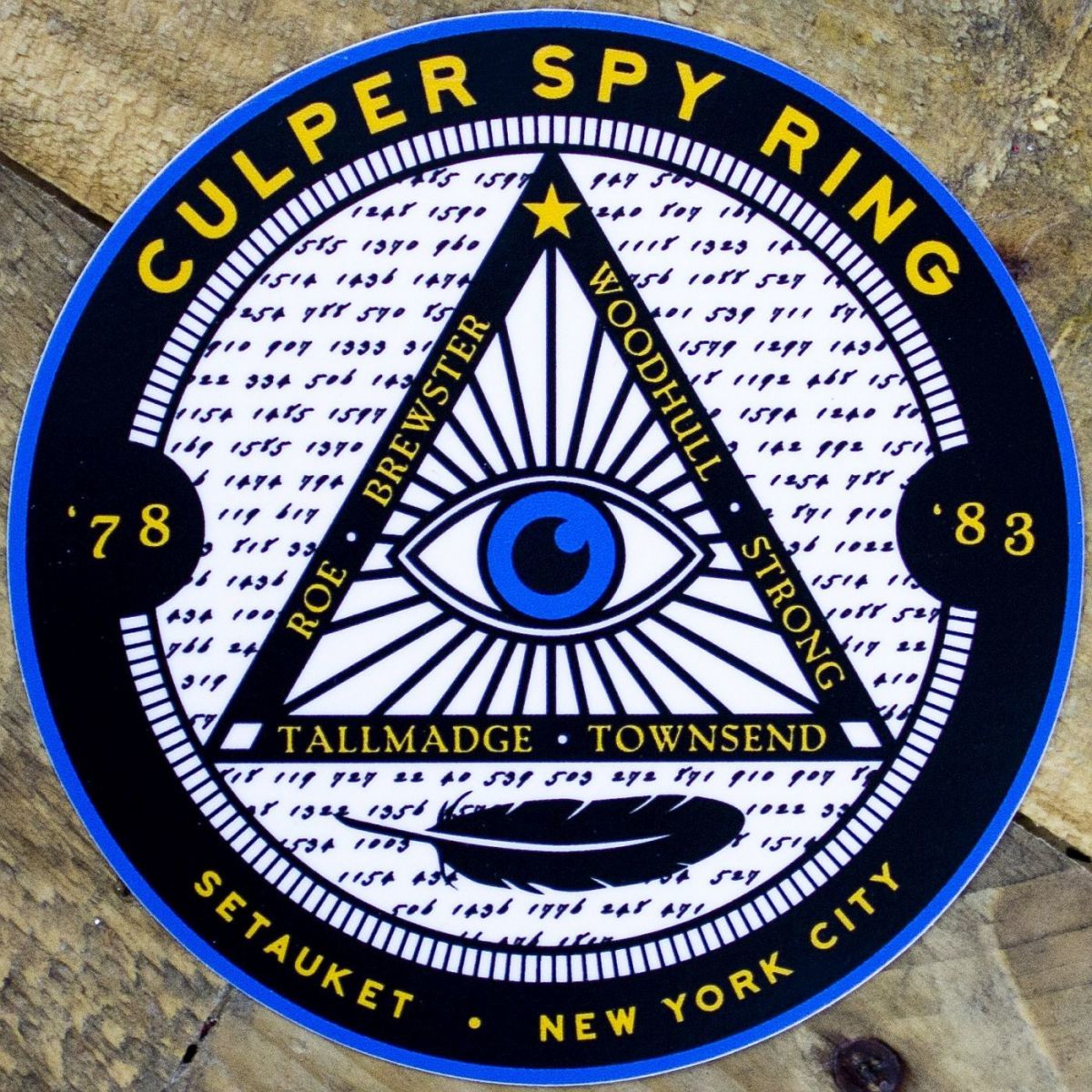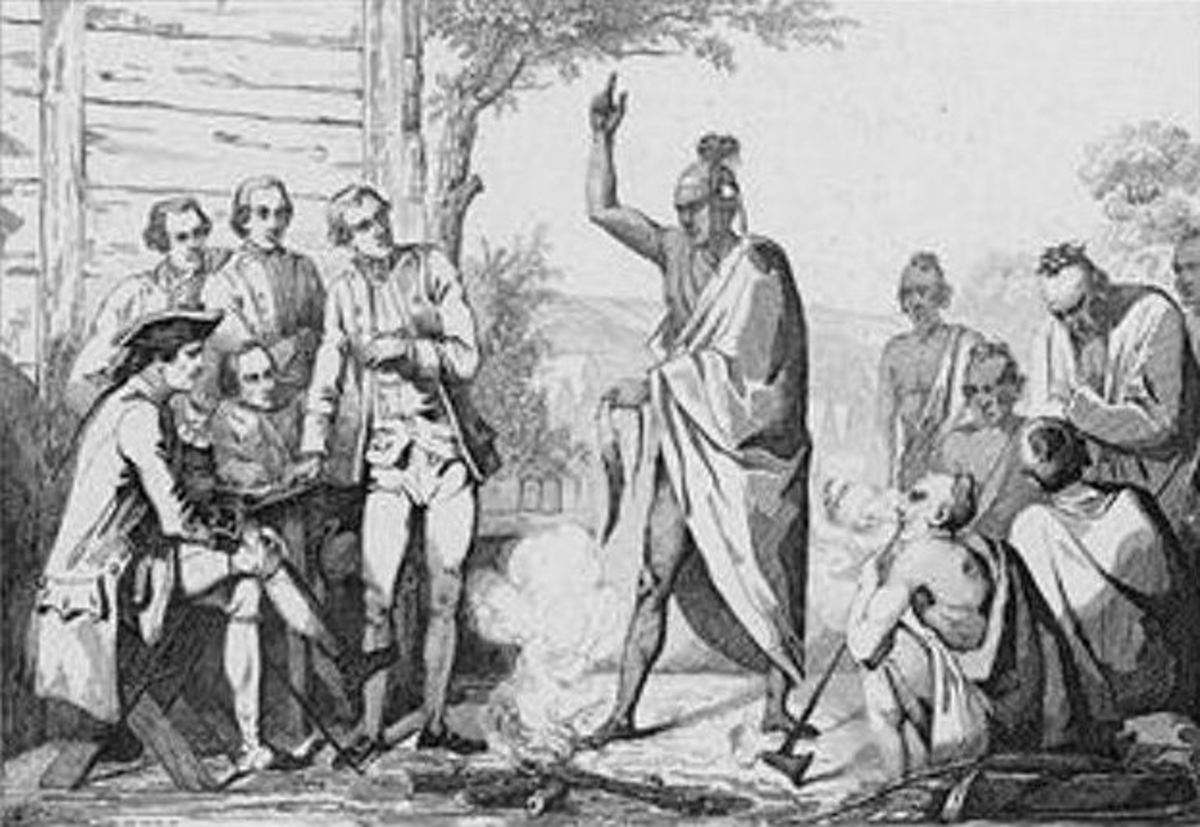- HubPages»
- Education and Science»
- History & Archaeology»
- History of the Americas»
- American History
American Revolutionary War (1775-1783): An analysis on the Social, Economic, and Political Triggers of the War.
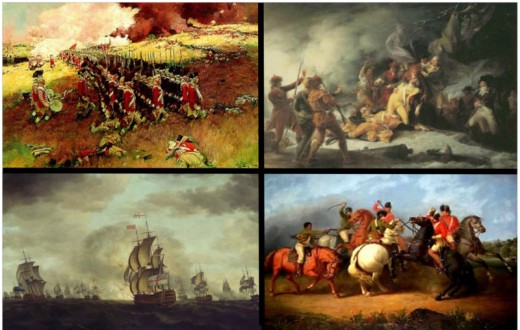
The American Revolutionary War also known as the American War for Independence ensued by the late 18th century between the thirteen colonies established in North America and the Empire of Great Britain. It pertains specifically to the military actions that the American colonies had undertaken against the British Empire to gain independence; the culmination of which is the American Revolution that focuses more on the social and political development after the war.
Brewing Discontent
Before war erupted, there was growing discontent among the Englishmen living in the thirteen colonies because of increased taxation and lack of representation in the British government. By 1765 a group called Sons of Liberty were formed who no longer wanted America to be ruled by the British Empire. However, obsessed for control the king of England— George III sent soldiers to Boston to intimidate the people because he did not want to lose control over the American colonies; the incident would later be called Boston Massacre (Draper p. 6-7). This was not taken well by the people and the collective sentiment led to a call for liberation. Colonists across the Americas made the plight of Boston and Massachusetts as their own. They express sympathy and concern for the suffering of their brethren in the common cause of liberty. In a way, the actions of the Empire against the people of Boston even reinforced the sentiments of the American colonists as it forged camaraderie among them. People from neighboring community would travel to Boston to bring aid like fresh fruits, vegetables, and fish to extend their support and show that whatever they are experiencing in Boston, the other colonies understand as well and are supporting them (Ward p. 2-3).
American colonists on the eve of the Revolution have formed a new identity that had now set them apart from Britons elsewhere—they no longer see themselves as Britons, Englishmen, or American colonists. “The New World settles had forged a society and a culture from multi-ethnic elements (English, Dutch, German, Scots-Irish and other Europeans), affected also by contact with Native Americans and African slaves.” They have formed among themselves a new consciousness and a new lure of a spacious frontier beckon (Ward p. 1).
With the unprecedented growth in overseas population of Europeans, particularly in the American colonies, and the European culture being transplanted to larger communities to which it had come from, brought with it a ready-made civilization; statecraft of European identity was not prepared to answer any development or treatment of any evolution of ideas. “The politicians and ministers of Europe continued to regard them as essentially expeditionary establishments, sources of revenue, possessions, and dependencies…” (Wells p. 195). With that in mind, their treatment of their colonies was that of a ‘sources of income,’ ‘possession,’ and ‘dependent’; proof of which are the harsh taxes that the Royal Crown would impose to its colonies.
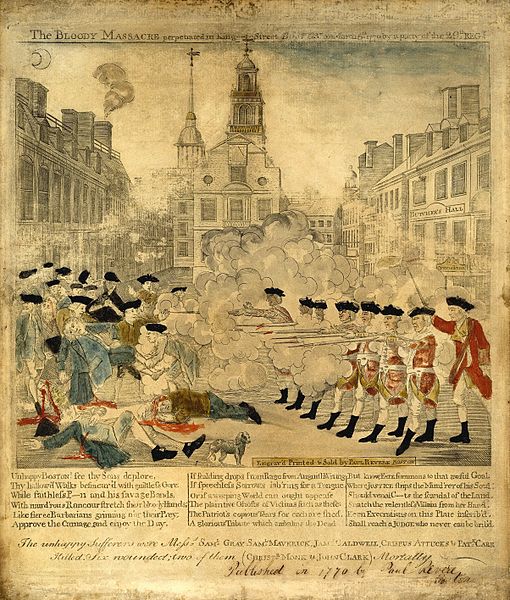
Economic
One of the major causes for the American colonies to break away from the British Empire is due to economic factors—particularly of increased taxation for the costs of ‘protection’ of the empire. Moreover, the increase in taxation was a show of force that the Empire has full control over its colonies and is a way of reinforcing its political power. Increase taxation meant that the colonies are effectively subjugated despite their distance. This not only reinforces the power and influence of the monarchy but also ensures that colonies remained a lucrative investment by exploiting the initiatives and efforts of the people. Furthermore, as American colonies began exploring and harnessing the natural resources, the colonies were able to compete in terms of exporting goods which competed and affected the goods being produced and exported by Britain.
Social
Another motivator for a revolutionary war for independence is the predominant concept of social contract as theorized by Rousseau. According to this political theory, people bond together for collective cooperation under an authority in the belief that this authority would perform its tasks of governing the people to promote greater good. This contract between the authority and the people exists as long as the authority has in it the vested interest of the people. However, when the authority turned to become self-serving for those people in power, it is within the natural right of the people to overthrow their government—in this case, break free from the British Empire, when these leaders go against the will of the people by not promoting the greater good; if this happen, then the social contract is broken. With this critical mindset and self-preservation, the American colonies justified their call for liberation.
Political
With the growing economic strength of the thirteen colonies and the oppressive government policies towards its colonies, there was a growing thirst for political liberation from the control of the empire towards self-governance and independence. Because there were no formally trained armies to defend them, the colonies relied on their individual capabilities to defend their territory. Afterwards, the colonies realized that they would be politically stronger and improve their military prowess if they would form an alliance since all of the colonies are now in unison towards a single aim—independence. It was this new social contract that became the starting point towards the realization of political freedom from the empire. And as a result of the efforts of the American revolutionary war, a new country was formed independent from the British crown: The United States of America.
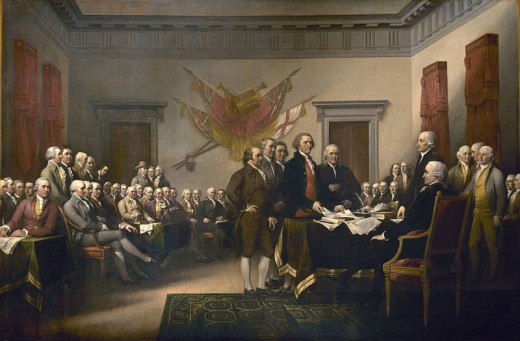
American History
- A Puebloan Explaining the Reasons for the Pueblo Revolt
The pueblo revolt recounted from the perspective of a puebloan - European Colonization of the American Continent
When Hernando Cortes first saw the Aztec city of Tenochtitlan South of the Lake of the Moon in North America, he was stunned to find the most magnificent and impressive city he has ever seen. - History of US Steel Industry
The role and contribution of the steel industry in the United States and how it lead to economic growth and technological spillover. - Philo Taylor Farnsworth: Inventor of Television
The life story of Philo Taylor Farnsworth, the man behind the television.
Conclusion
The birth of the United States of America as a nation was not a political maneuvering of the handful elite nor was it economically motivated by greed of the mercantile few. The birth of the United States of America as a nation was a burning passion of the people for independence, for liberty, for freedom though it was triggered by social, political, and economic factors. It is these virtues that the Founding Fathers and thousands of brave men had fought, bled, and died for. It was these virtues that they believed in. When they can no longer stand for the injustices, when suffering is being caused by an entity, by an unjust government who governs its territory miles away, when there is no other choice but to fight to preserve these right and the dignity of the people, then the only way that evil will continue to prevail is if good people will continue to standby and do nothing.
The Founding Fathers of the Unites States envisioned a nation wherein people of every color from every direction would come to its shores because this country would be a proud symbol of freedom and justice. It would be a symbol of opportunity, a land where dreams could be made into reality. And thanks to the visionary men who saw greatness and potential not in the land per se but in the people, the United States of America is a great, influential, and a powerful country. And it would not be great if the Founding Fathers did not saw the potential, the key element that the British Empire has underestimated—its people. The true strength of the US was not its resources, its knowledge, its military prowess; it didn’t have any of those. The true strength of the United States was founded on the virtues that the Founding Fathers fought for.
Works Cited
Draper, A. S. The Start of the American Revolutionary War: Paul Revere Rides at Midnight. New York: The Rosen Publishing Group, Inc. 2001.
Ward, Harry M. The War for Independence and the Transformation of American Society. London: Routledge, 2003.
Wells, H. G. A Short History of the World. Read Books, n.d.


